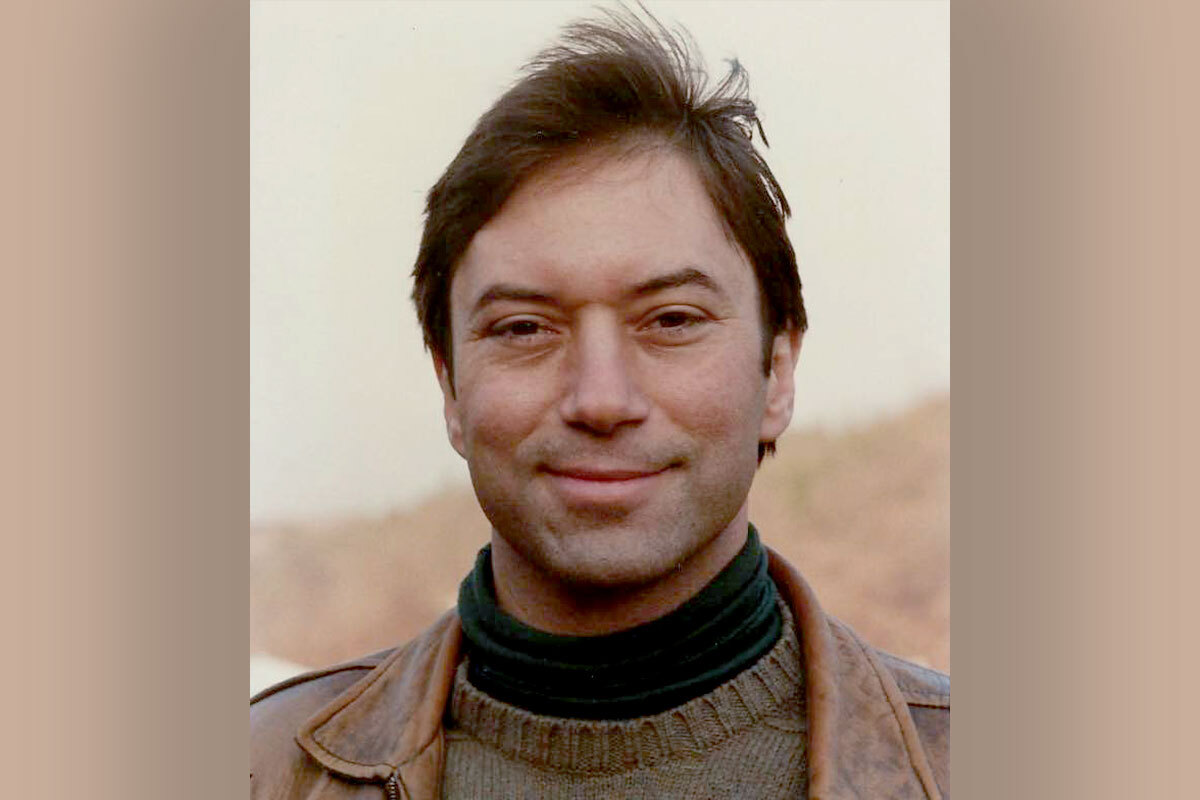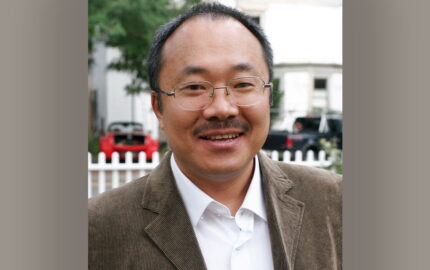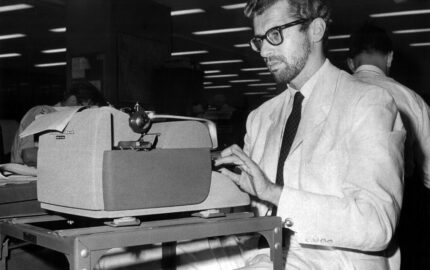Karl Schoenberger, a 1995 Nieman Fellow and an award-winning journalist, writer, author, died on April 8, 2025, in El Cerrito, California, following complications from a stroke. He was 71.
During his 25-year journalism career, Schoenberger worked in Tokyo for the Los Angeles Times, The Asian Wall Street Journal, and The Associated Press, and in the U.S. for the Hartford Courant and the San Jose Mercury News/Knight Ridder. He also covered Asia as a roving Pacific Rim reporter for the Los Angeles Times, based in California, and worked for two years at Fortune magazine in Hong Kong following his Nieman Fellowship at Harvard University.
As a foreign correspondent, Schoenberger wrote about politics, culture, business and economic development in East Asia and covered news stories including South Korea’s democracy movement, the Tiananmen Square protests in Beijing, and the rise of the Japanese economy in the 1980s and early 1990s. Fluent in Japanese, he was a member of the Foreign Correspondents’ Club of Japan and served as the organization’s first vice president.
From the Midwest to East Asia
A native of Hinsdale, Illinois, Schoenberger earned a degree from Stanford University in Japanese language and literature in 1976 and continued his literary studies at Kyoto University on a Monbusho Scholarship from 1977-1979. He additionally was a recipient of the Japan Foundation’s Abe Fellowship.
Before starting his journalism career, he worked as a cab driver, social worker and Japanese-language tour guide in San Francisco.
Schoenberger was a teaching fellow at UC Berkeley’s Graduate School of Journalism and was a visiting scholar at UC’s Human Rights Center from 1998-2001 when he wrote his book “Levi’s Children: Coming to Terms with Human Rights in the Global Marketplace” (Grove Atlantic Press).
In 1999, he joined the at the San Jose Mercury News as an assistant business editor for technology and later, during a hiatus from the Mercury newsroom, he wrote articles about the social and cultural dimensions of the internet economy as a contributing writer for The Industry Standard and was a contributor to The New York Times Sunday business section and other publications. He rejoined the Mercury in October 2001 to cover the war in Afghanistan from Islamabad.
Schoenberger received the Overseas Press Club’s 2002 Whitman Bassow Award for Environmental Reporting for his investigation for The San Jose Mercury News on the environmental hazards created by the export of U.S. electronic waste to China
After stepping away from journalism in 2006, Schoenberger took up fiction writing and became a member of the San Francisco Writers Workshop and a volunteer writing coach in the Albany, California, public schools. He also was a member of the Berkeley Zen Center.
In 2013, he published his first book, “My Life as a Cadaver: A Survivor’s Tale,” a semi-fictional memoir.
Schoenberger is survived by his daughters, Chelsea Elisabeth Rose, Sonya Alexandra Schoenberger and Hannah Marumoto Schoenberger; his former wife Susan Kuramoto Moffat; and his older brother, John Schoenberger.
Donations in Schoenberger’s memory may be made to the Committee to Protect Journalists.
Additional information:
- Read highlights from Schoenberger’s journalism career.
- Watch Schoenberger on the C-SPAN panel “Fifty Years of U.S. and Japanese Relations” a discussion sponsored by the Los Angeles World Affairs Council 50 years after Pearl Harbor



